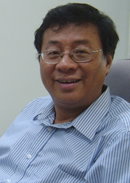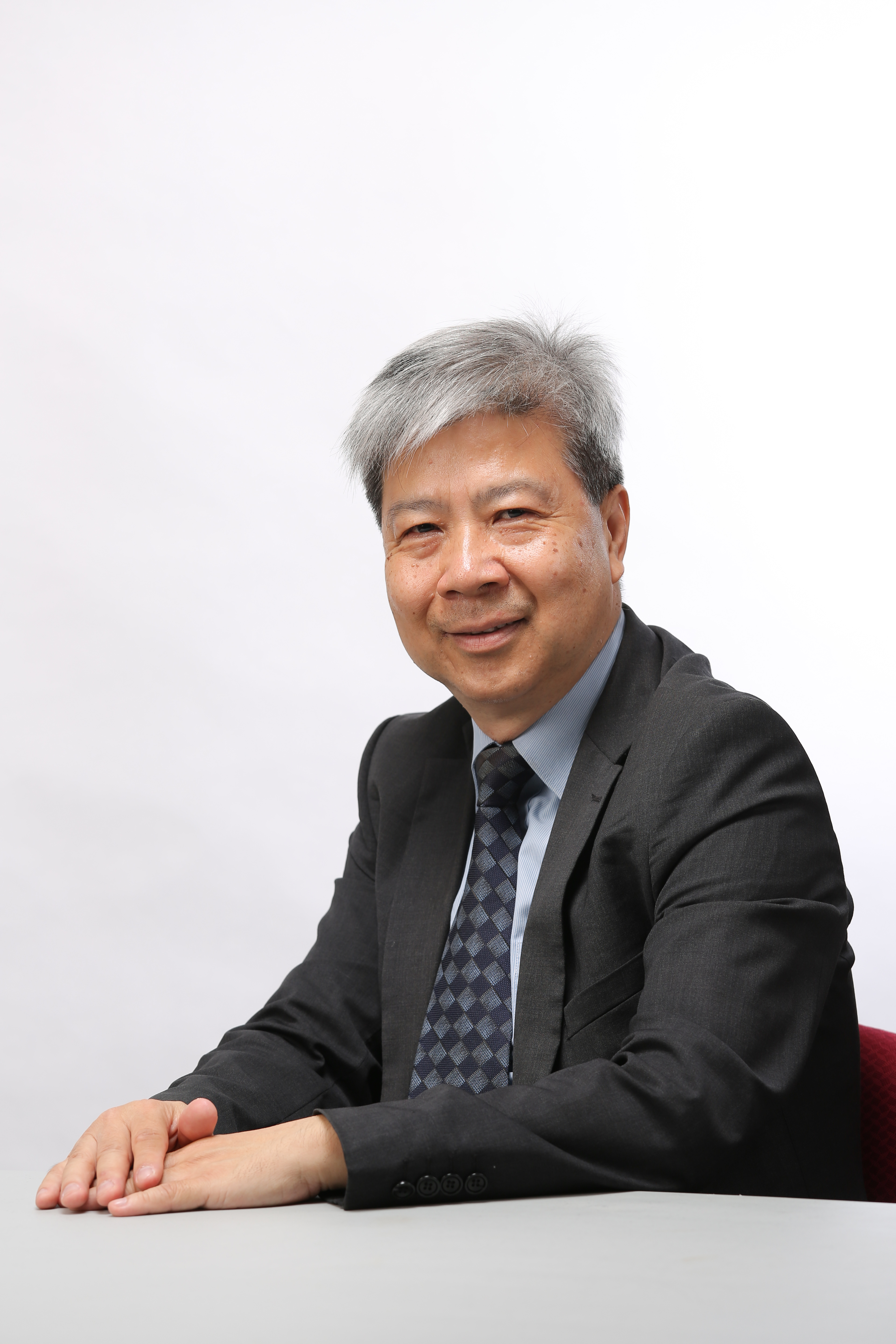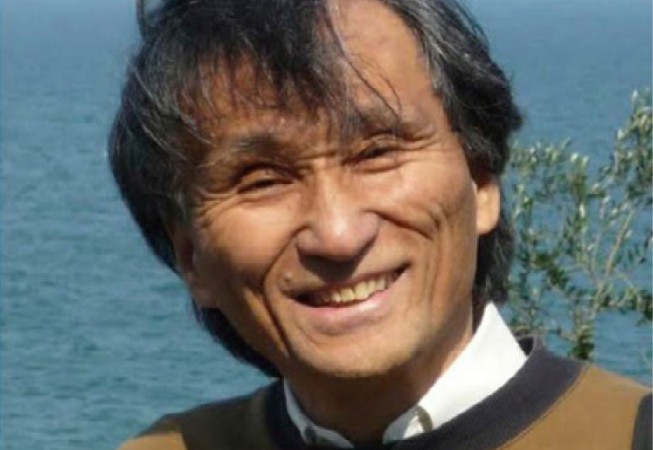:::APSCE Fellows
Inaugurated in 2019, the APSCE Fellowship recognizes outstanding members of the Asia-Pacific Society for Computers in Education (APSCE) in the field of computers in education. The title of APSCE fellow indicates, (1) Sustained and distinguished academic contributions to the advancement of research in the field of computers in education at the international level; (2) A strong track record in academic networking and services within the Asia-Pacific region.
The full guidelines for APSCE Fellows are available here
The APSCE Fellows (in alphabetical order):
- Gautam BISWAS (USA)
- Tak-Wai CHAN (Taiwan)
- H. Ulrich HOPPE (Germany)
- Siu Cheung KONG (Hong Kong)
- Chee-Kit LOOI (Singapore)
- Riichiro MIZOGUCHI (Japan)
Short biographies
Gautam BISWAS
Cornelius Vanderbilt Professor of Engineering
Professor of Computer Science and Computer Engineering, EECS Department
Senior Research Scientist at the Institute for Software Integrated Systems (ISIS)
Vanderbilt University, Nashville, TN. USA.
Website: http://dts-web1.it.vanderbilt.edu/~biswasg/
Year of induction: 2020

Dr. Gautam Biswas is a Cornelius Vanderbilt Professor of Engineering and Professor of Computer Science and Computer Engineering at Vanderbilt University. He conducts research in Intelligent Systems with primary interests in applying AI and Machine Learning techniques for monitoring and control of Cyber Physical systems, and developing Open Ended Learning Environments (OELEs) for K-12 STEM and Computational Thinking (CT) learning environments. His early work focused on learning by teaching environments that promoted the social and cognitive aspects of learning. The best known work in this area, the Betty’s Brain system is still used to teach multiple science topics in middle classrooms. His more recent work focuses on developing learning environments, such as CTSiM (Computational Thinking using Simulation and Modeling), C2STEM (Collaborative, Computational STEM), and SPICE (Science Projects Integrating Computing and Engineering) that exploit synergies between CT and STEM concepts and practices to help middle and high school students learn by building computational models. He has also developed innovative learning analytics approaches, using multimodal data for studying students’ self-regulated learning behaviors and linking them to their performance in the learning environment.
He has published extensively, and has over 600 refereed publications, and received a number of best paper awards. In 2011, he received the NASA Aeronautics Research Mission Directorate Technology and Innovation Group Award for Vehicle Level Reasoning System and Data Mining methods to improve aircraft diagnostic and prognostic systems. In addition to being an APSCE Fellow, Prof. Biswas is also a Fellow of the IEEE and the Prognostics and Health Management (PHM) Society.
Tak-Wai Chan
Chair Professor, Graduate Institute of Networked Learning, National Central University, Taiwan
Website: http://chan.lst.ncu.edu.tw/
Year of induction: 2019
 Tak-Wai Chan is Chair Professor of the Graduate Institute of Network Learning Technology at National Central University in Taiwan. In the late Eighties, he pioneered research on virtual learning companions. In 1990, his team developed possibly the earliest networked learning system dedicated to support collaborative learning and competitive learning games. He continued to work on various networked learning models, intelligent future classrooms, and digital game-based learning in the Nineties. In 2000, his team built an online learning society called EduCity. By 2003, EduCity had 2,500 schools and 1.5 million online participants before it was transferred to a telecom company. Throughout the 2000’s, he worked on mobile and ubiquitous learning, one-to-one technology enhanced learning, seamless learning while he continued to search ways of nurturing student interest in reading, writing and mathematics. At the beginning of this decade, realizing the need of a theory that can guide the design of future education in Asia, he worked with a small group Asian researchers, which grew bigger and an IDC Initiative was formed later, to build a learning design theory called Interest-Driven Creator (IDC) Theory. This theory may exert far-reaching impact in future Asian education because the considerably examination-driven Asian education needs to change.
Tak-Wai Chan is Chair Professor of the Graduate Institute of Network Learning Technology at National Central University in Taiwan. In the late Eighties, he pioneered research on virtual learning companions. In 1990, his team developed possibly the earliest networked learning system dedicated to support collaborative learning and competitive learning games. He continued to work on various networked learning models, intelligent future classrooms, and digital game-based learning in the Nineties. In 2000, his team built an online learning society called EduCity. By 2003, EduCity had 2,500 schools and 1.5 million online participants before it was transferred to a telecom company. Throughout the 2000’s, he worked on mobile and ubiquitous learning, one-to-one technology enhanced learning, seamless learning while he continued to search ways of nurturing student interest in reading, writing and mathematics. At the beginning of this decade, realizing the need of a theory that can guide the design of future education in Asia, he worked with a small group Asian researchers, which grew bigger and an IDC Initiative was formed later, to build a learning design theory called Interest-Driven Creator (IDC) Theory. This theory may exert far-reaching impact in future Asian education because the considerably examination-driven Asian education needs to change.Chan bears a personal mission to facilitate the building of regional research communities since the early nineties. He co-founded two conference series, ICCE and GCCCE, and, respectively, two corresponding international academic societies, APSCE and GCSCE, one for the Asia-Pacific regional community and the other for the global Chinese community.
H. Ulrich HOPPE
Professor, Department of Computer Science and Applied Cognitive Science (Engineering Faculty), University of Duisburg-Essen, Germany
Website: https://www.collide.info/en
Year of induction: 2019
 Dr. H. Ulrich Hoppe holds a full professorship in the area of “Collaborative and Learning Support Systems” at the University of Duisburg-Essen (Germany). After his PhD on interactive programming in mathematics education in 1984, Ulrich Hoppe has worked for about ten years in the area of intelligent user interfaces and cognitive models in HCI, before he re-focused his research on intelligent support in educational systems and distributed collaborative environments in 1995. With his COLLIDE Research Group he has participated in more than ten European projects on Technology-enhanced learning. He was one of the initiators of the European Network of Excellence Kaleidoscope (2004-07). Since 2015 he is engaged as a PI in a Research Training Group on “User Centred Social Media” funded by the German National Science Foundation (DFG). His current research is focused on computational techniques for learning and knowledge building in various context, including higher education as well as vocational education and training. He is an active member of the Learning Analytics community where he particularly pursues the integration and adaptation of computational methods, such as combinations of (social) network analysis with other methods of data mining and artefact analysis.
Dr. H. Ulrich Hoppe holds a full professorship in the area of “Collaborative and Learning Support Systems” at the University of Duisburg-Essen (Germany). After his PhD on interactive programming in mathematics education in 1984, Ulrich Hoppe has worked for about ten years in the area of intelligent user interfaces and cognitive models in HCI, before he re-focused his research on intelligent support in educational systems and distributed collaborative environments in 1995. With his COLLIDE Research Group he has participated in more than ten European projects on Technology-enhanced learning. He was one of the initiators of the European Network of Excellence Kaleidoscope (2004-07). Since 2015 he is engaged as a PI in a Research Training Group on “User Centred Social Media” funded by the German National Science Foundation (DFG). His current research is focused on computational techniques for learning and knowledge building in various context, including higher education as well as vocational education and training. He is an active member of the Learning Analytics community where he particularly pursues the integration and adaptation of computational methods, such as combinations of (social) network analysis with other methods of data mining and artefact analysis.
Siu Cheung KONG
Professor of Department of Mathematics and Information Technology &
Director of Centre for Learning, Teaching and Technology,
The Education University of Hong Kong, Hong Kong
Website: https://www.eduhk.hk/mit/staff/sckong/Year of induction: 2020

Prof. KONG Siu Cheung currently is Professor of the Department of Mathematics and Information Technology (MIT); and Director of Centre for Learning, Teaching and Technology (LTTC), the Education University of Hong Kong. Prof. Kong holds a doctorate from the Department of Computer Science of the City University of Hong Kong. Prof. Kong has produced 250 academic publications in the areas of pedagogy in the digital classroom and online learning; policy on technology-transformed education and professional development of teachers for learner-centered learning; and computational thinking education. He has completed/conducted 74 research projects since joining the University (the then Hong Kong Institute of Education). Prof. Kong is at present serving as the Editor-in-Chief of the international journal Research and Practice in Technology Enhanced Learning (RPTEL) and Journal of Computers in Education (JCE). He was in the presidential roles for the Asia-Pacific Society for Computers in Education (APSCE) for six years, as the President-Elect in 2012 and 2013, the President in 2014 and 2015, and Past-President in 2016 and 2017. Prof. Kong is the Convener of Computational Thinking Education in Primary and Secondary Schools International Research Network (IRN) under World Educational Research Association (WERA) since May 2019. He also convened the WERA IRN Theory and Practice of Pedagogical Design for Learning in Digital Classrooms from December 2012 to December 2015. Prof. Kong currently is the principal investigator of an eight-year project on coding for computational thinking development.
Chee-Kit LOOI
Professor, National Institute of Education, Nanyang Technological University, Singapore
Website: https://www.nie.edu.sg/profile/looi-chee-kit
Year of induction: 2019
 Chee-Kit Looi is Professor of Education at the National Institute of Education, Nanyang Technological University (NTU) in Singapore. He was the Founding Head of the Learning Sciences Lab, the first research centre devoted to the study of the sciences of learning in the Asia-Pacific region. He is also co-Director of the Centre of Research and Development in Learning, NTU. He organized ICCE 1995 and ICCE 2005 in Singapore, and served as President of APSCE from 1997 to 2011. He is a founding member of the Global Chinese Society of Computers in Education and served as its past president.
Chee-Kit Looi is Professor of Education at the National Institute of Education, Nanyang Technological University (NTU) in Singapore. He was the Founding Head of the Learning Sciences Lab, the first research centre devoted to the study of the sciences of learning in the Asia-Pacific region. He is also co-Director of the Centre of Research and Development in Learning, NTU. He organized ICCE 1995 and ICCE 2005 in Singapore, and served as President of APSCE from 1997 to 2011. He is a founding member of the Global Chinese Society of Computers in Education and served as its past president.
Chee-Kit’s research in education is characterized by producing outcomes, processes or artifacts that impact practice. An early completed project involved the design of digital mathematics manipulatives which have been made available to all secondary schools in Singapore. He is the PI or co-PI of several research projects funded by the National Research Foundation, Singapore. His research work on creating routine practices of rapid collaborative learning using GroupScribbles has made significant inroads into transforming school practices in several primary and secondary schools. His research on seamless and mobile learning has made good progress toward creating a model of 1:1 computing in schools, remarkable in terms of achieving sustainability and scalability in ten over schools.
Chee-Kit was an associate editor for the JLS, and an editorial member of JCAL, ijCSCL, and IJAIED. He was a member of the Core Expert Group that developed the framework for assessing Collaborative Problem Solving in OECD PISA 2015.
Riichiro MIZOGUCHI
Fellow, Japan Advanced Institute of Science and Technology (JAIST), Japan
Website: http://www.jaist.ac.jp/ks/english/portfolio/mizoguchi/
Year of induction: 2019
 Riichiro Mizoguchi received Ph.D. degree from Osaka University in 1977. He had been a full professor of the Institute of Scientific and Industrial Research, Osaka University from 1990 to 2012 and a research professor of Research Center for Service Science, Japan Advanced Institute of Science and Technology (JAIST) from October, 2012 to March, 2019. He is currently Fellow of JAIST and Associate researcher, ISTC-CNR Laboratory for Applied Ontology, Trento, Italy. His research interests include Non-parametric data analyses, Knowledge-based systems, Ontology engineering and Intelligent learning support systems. Dr. Mizoguchi was President of International AI in Education Society and Asia-Pacific Society for Computers in Education from 2001 to 2003 and President of Japanese Society for Artificial Intelligence(JSAI) from 2005-2007. He received honorable mention for the Pattern Recognition Society Award in 1985, Best paper award of the Institute of Electronics, Information and Communication Engineers in 1988, 10th Anniversary Memorial Paper Award of JSAI in 1996, Best paper awards of ICCE99 and ICCE2006, Best paper award of JSAI in 2006 and 2012, and Best paper award of Japan Society for Information and Systems in Education in 2010 and 2019. He was Vice-President of SWSA (Semantic Web Science Association) and Co-Editor-in-Chief of J. of Web Semantics from 2005 to 2009 and from 2008 to 2011, respectively. He is currently an associate editor of ACM TiiS and an editorial board member of Applied Ontology.
Riichiro Mizoguchi received Ph.D. degree from Osaka University in 1977. He had been a full professor of the Institute of Scientific and Industrial Research, Osaka University from 1990 to 2012 and a research professor of Research Center for Service Science, Japan Advanced Institute of Science and Technology (JAIST) from October, 2012 to March, 2019. He is currently Fellow of JAIST and Associate researcher, ISTC-CNR Laboratory for Applied Ontology, Trento, Italy. His research interests include Non-parametric data analyses, Knowledge-based systems, Ontology engineering and Intelligent learning support systems. Dr. Mizoguchi was President of International AI in Education Society and Asia-Pacific Society for Computers in Education from 2001 to 2003 and President of Japanese Society for Artificial Intelligence(JSAI) from 2005-2007. He received honorable mention for the Pattern Recognition Society Award in 1985, Best paper award of the Institute of Electronics, Information and Communication Engineers in 1988, 10th Anniversary Memorial Paper Award of JSAI in 1996, Best paper awards of ICCE99 and ICCE2006, Best paper award of JSAI in 2006 and 2012, and Best paper award of Japan Society for Information and Systems in Education in 2010 and 2019. He was Vice-President of SWSA (Semantic Web Science Association) and Co-Editor-in-Chief of J. of Web Semantics from 2005 to 2009 and from 2008 to 2011, respectively. He is currently an associate editor of ACM TiiS and an editorial board member of Applied Ontology.
